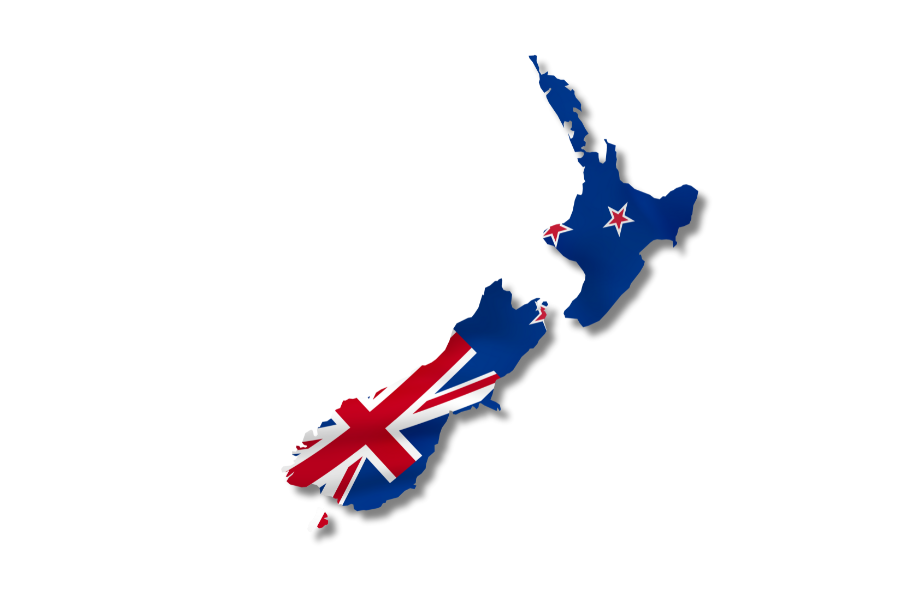New Zealand
Overview of the New Zealand
New Zealand, an island nation in the southwestern Pacific Ocean, is known for its vibrant indigenous Māori culture and diverse climates, ranging from the subtropical North Island to the temperate South Island. The country boasts a robust healthcare system and a well-developed transportation network that includes roads, railways, and air travel, facilitating easy movement across its picturesque landscapes.

New Zealand’s infrastructure is highly developed, contributing to its strong global rankings in quality of life and ease of doing business. The nation is considered one of the safest for immigrants, offering a welcoming community and numerous opportunities for work and study, making it an attractive destination for people from around the world.
Percentage Distribution of Non-Immigrant Student Visa Holders in New Zealand (2014-2023 In Percentage)
Percentage Distribution of Non-Immigrant Visa Holders in New Zealand (2014-2023 In Percentage)
VISAS
Climate and Seasons

SPRING
September to November
Temperatures
10°C to 20°C (50°F to 68°F)

SUMMER
December to February
Temperatures 16°C to 25°C (61°F to 77°F)

AUTUMN
March to May
Temperatures 10°C to 20°C (50°F to 68°F)

WINTER
June to August
Temperatures 5°C to 15°C (41°F to 59°F)
WHY STUDY IN New Zealand?
Studying in New Zealand offers a unique combination of high-quality education, a safe environment, and stunning natural landscapes, making it an ideal destination for international students. New Zealand universities are renowned for their research quality and strong focus on practical learning, which is facilitated by small class sizes ensuring personalized attention from faculty. The country’s educational system is regulated with stringent standards, ensuring that institutions consistently deliver education of the highest quality.New Zealand is known for its welcoming and diverse community, providing a supportive environment for students from all backgrounds. The nation’s commitment to cultural respect and inclusion is evident in its policies and the everyday life of its citizens. Students also benefit from opportunities to work during and after their studies, which can help with the costs of living and provide valuable work experience in a competitive global job market. Additionally, the peaceful, politically stable atmosphere combined with the opportunity to explore its rich Maori heritage and adventurous outdoor activities makes New Zealand a fulfilling place to study and live.
COURSES
Computer Science
Business Analytics
MBA
Mechanical Engineering
Major Courses Opted by Students

Test Preparation at PVR Global Educational Services
PVR Global Educational Services offers tailored training for GRE, IELTS, PTE, SAT, GMAT, and Duolingo tests. Expert instructors provide personalized study plans, practice materials, and mock exams to boost proficiency in reading, writing, listening, speaking, and quantitative skills. Flexible scheduling and comprehensive support help students achieve high scores and succeed in their academic and professional endeavors.
Quick Facts about New Zealand
Eight universities consistently ranked among the best in the world for research and academic excellence.
Offers a wide range of courses from undergraduate to PhD levels in varied fields.
Students can work up to 20 hours a week during semesters; full-time during breaks.
New Zealand is globally recognized for its safe, peaceful, and politically stable environment.
Vibrant mix of cultures, including a significant indigenous Maori community and a friendly society
Live and study amidst beautiful settings—mountains, beaches, and green landscapes ideal for outdoor enthusiasts.
Graduates can apply for a visa to work in New Zealand for up to three years after graduation.
Percentage Distribution of Most Popular Courses Opted by Indian Students in New Zealand(2014-2023 In Percentage)
Education System in New Zealand
What it covers: Compulsory education from age 5 to 16, sometimes extending to 19. Grade System: Mainly uses descriptive reports. Duration: Up to 13 years (Year 1 to Year 13). Average Fee: Mostly free in public schools, private schools charge fees.
What it covers: Includes universities, polytechnics, and private training establishments. Grade System: Grading from A (excellent) to F (fail). Duration: Varies based on the program. Average Fee: Approximately NZD 4,000-10,000 per year for residents.
What it covers: Provides foundational undergraduate education in various fields. Grade System: Graded from A+ to F, with GPA calculated. Duration: Typically 3 years (4 years for engineering and some sciences). Average Fee: NZD 22,000-32,000 per year for international students.
What it covers: Advanced academic or professional expertise, often involving research. Grade System: Same as Bachelor’s degree; A+ to F. Duration: 1-2 years depending on full-time or part-time study. Average Fee: NZD 26,000-37,000 per year for international students
What it covers: Highest level of academic degree, heavily focused on research. Grade System: Emphasis on thesis quality rather than grades. Duration: 3-4 years. Average Fee: NZD 6,500-9,000 per year for domestic students, higher for international.

Identifying the Right Institution
Check if the university is accredited and review its position in global and national rankings.
Ensure the university offers strong programs in your field of interest with expert faculty.
Look for universities with robust research facilities and funding in areas relevant to your study.
Research statistics on job placements and employer partnerships to assess career prospects after graduation.
Consider the availability of counseling, career guidance, and international student support services.
Evaluate the quality of libraries, laboratories, sports facilities, and student accommodations.
Consider the university’s location, cost of living, climate, and cultural activities available.
No of Students placed in different sectors (2014-2023 In Percentage)
Success Rate of Indian Students in the New Zealand by Sector (2014-2023 In Percentage)
Getting a New Zealand Visa
Identify your purpose of visit—tourism, study, work, or residency. Each category has specific visas, so choose the one that best fits your plans.
Visit the New Zealand Immigration website or consult their embassy to understand specific requirements for your visa type, such as health and character standards.
Collect documents like passport, proof of financial means, offer of employment, or university admission letters, depending on your visa type.
Register for an account on the New Zealand Immigration online portal. This account will be used to fill out and submit your application.
Log in to your account, fill out the application form accurately, and ensure all information is complete and correct.
The fee varies by visa type and must be paid online during the application process via credit card or other approved payment methods.
Depending on your nationality and visa type, you may need to provide biometric data, such as fingerprints and a photograph, at a visa application center.
Some visa categories require an interview. If needed, you will be informed of the time and place to discuss your application with a visa officer.
Processing times vary by visa type. You can track your application status online using your account on the New Zealand Immigration website.
Once approved, you will receive your visa electronically or as a label in your passport, depending on the visa type.
Double-check all entries in your application for accuracy, respond promptly to any requests for additional information, and consider consulting with a visa specialist if needed.
List of Universities









Intake details
Intake | Start Dates | Remarks |
|---|---|---|
Summer Intake | Late February to March | Main intake, most programs available |
Mid-Year Intake | July to August | Limited courses available, good for mid-year entry |
Late Year Intake | November | Few programs, mainly for specific courses |
Deadlines
Intake | Scholarship Deadlines | Admission Deadlines |
|---|---|---|
Fall Intake | October - December | September - November |
Spring Intake | April - June | May - July |
Summer Intake | August - October | September - November |
Documents required
Document Type | Requirements | Remarks |
|---|---|---|
Passport | Valid passport with at least six months beyond intended stay | Essential for all visa applications |
Academic Transcripts | Official transcripts from previous institutions | Must be certified copies |
English Proficiency Test | IELTS, TOEFL, or equivalent scores | Check specific score requirements per course |
Statement of Purpose | Personal statement detailing reasons for choosing the program | Should reflect your academic and career goals |
Letters of Recommendation | Typically 2-3 letters from professors or employers | Should highlight your qualifications and potential |
Resume/CV | Up-to-date resume or curriculum vitae | Include academic, professional, and extracurricular achievements |
Financial Documents | Proof of funds to cover tuition and living expenses | Bank statements, scholarship letters, etc. |
Visa Application Form | Completed visa application form | Available on the immigration website |
Medical Certificate | Health check-up and medical certificate | Required for visa application |
Photographs | Passport-sized photographs | Follow specific dimensions and guidelines |







